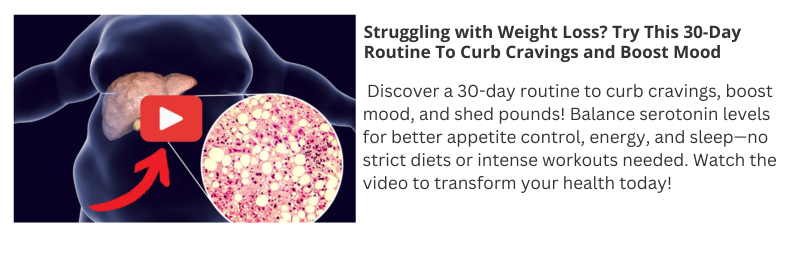Probiotics are live microorganisms that, when consumed in adequate amounts, provide health benefits, particularly for digestive health. They are often referred to as “good” or “friendly” bacteria because they help maintain the balance of bacteria in the gut. This balance is crucial not only for digesting food but also for overall health, including immune system function. Many people turn to probiotics to address various gastrointestinal issues, including stomach pain and gas, which can be symptoms of underlying imbalance or conditions like irritable bowel syndrome (IBS).

While the benefits of probiotics are well-known, choosing the right type of probiotic for stomach pain and gas can be a complex task. The effectiveness of a probiotic supplement can depend on several factors, such as the specific strains of bacteria it contains and the quantity of live bacteria (measured in colony-forming units or CFUs). Certain strains have been studied for their role in gut health and may help alleviate discomfort associated with gas and bloating. In contrast, others may be more effective for different digestive concerns.
Key Takeaways
- Probiotics can help restore and maintain gut bacterial balance, potentially easing stomach pain and gas.
- Selecting a probiotic with specific strains proven to relieve digestive discomfort is essential.
- The appropriate probiotic choice depends on the individual’s unique digestive health needs and symptoms.
Understanding Probiotics and Gut Health
Understanding the intricate relationship between probiotics and gut microbiome is essential to maintain digestive health. These beneficial microorganisms contribute significantly to gut health, influencing everything from stomach pain to gas.
The Gut Microbiome and Its Role
The gut microbiome consists of trillions of microorganisms living in the digestive tract, which include bacteria, viruses, and fungi. These microorganisms play a crucial role in digestive health. They help break down food, absorb nutrients, and defend against harmful pathogens. An imbalance in these microbial populations, or dysbiosis, could contribute to gastrointestinal issues such as bloating, gas, and stomach pain.
Probiotics and Digestive Balance
Probiotics are live microorganisms that can restore and maintain a healthy balance in the gut microbiome when consumed in adequate amounts. These are often described as “good” bacteria and are thought to reduce symptoms of digestive discomfort. For instance, certain strains of probiotics found in foods such as yogurt or dietary supplements have been shown to alleviate bloating and gas.
The Science Behind Probiotics
Scientific research underpins the health claims about probiotics, revealing that they can produce enzymes that aid digestion, produce substances with anti-inflammatory properties, and compete with harmful bacteria for nutrients and space on intestinal walls. The precise mechanism by which probiotics alleviate stomach pain and gas is still being explored, but studies have confirmed that specific strains can positively affect gut health. For instance, Bifidobacterium and Lactobacillus are frequently cited for their benefits in improving symptoms of irritable bowel syndrome (IBS).
Linking to research or additional resources can aid readers in further exploring the topic, such as understanding what probiotics are and how to select the best ones for individual needs.
Best Probiotic Strains for Digestive Discomfort
When addressing stomach pain and gas, specific probiotic strains are particularly effective in alleviating symptoms and promoting digestive health.
Lactobacillus Strains
Lactobacillus acidophilus: This strain is known to help reduce bloating and gas and is commonly found in yogurts and fermented foods.
Lactobacillus plantarum: With its ability to balance gut bacteria and improve the intestinal barrier, Lactobacillus plantarum can be beneficial in mitigating abdominal pain.
Bifidobacterium Strains
Bifidobacterium infantis:
Bifidobacterium infantis has shown promise in easing symptoms of irritable bowel syndrome, including stomach discomfort and bloating.
Bifidobacterium bifidum:
This strain aids in the digestion of dairy products and complex carbohydrates, potentially reducing gas production and discomfort.
Other Beneficial Strains
Saccharomyces boulardii:
Regarded for its efficacy in treating diarrhea and other gastrointestinal disorders, Saccharomyces boulardii is a yeast probiotic often recommended for digestive upset.
Bacillus coagulans:
It produces lactic acid and may improve nutrient absorption, helping to alleviate symptoms like gas and abdominal pain.
The Link Between Probiotics and IBS

Emerging research suggests that probiotics may play a key role in managing Irritable Bowel Syndrome (IBS) symptoms, such as stomach pain and gas.
Understanding IBS
IBS is a chronic condition characterized by a collection of symptoms that typically include abdominal pain, bloating, and changes in bowel habits like constipation and diarrhea. The exact cause of IBS is not fully understood, but it is believed to involve a combination of intestinal dysregulation, heightened pain sensitivity, and gut-brain axis disruption.
Probiotics as a Management Strategy
Probiotics are live microorganisms posited to restore the natural balance of gut bacteria, which can benefit individuals with IBS. For example, Lactobacillus acidophilus NCFM® has been reported to alleviate various IBS symptoms. Here is how probiotics may influence IBS management:
- For Constipation: Specific strains, such as Bifidobacterium lactis, have shown efficacy in improving bowel regularity.
- For Diarrhea: Probiotics like the Saccharomyces boulardii and Lactobacillus rhamnosus GG are helpful for diarrhea-related IBS symptoms.
Research indicates that probiotics might aid in reducing inflammatory responses and modulating gut motility, both of which have notable relevance in IBS symptomatology. A review of studies suggests probiotics can significantly improve IBS symptoms such as bloating and abdominal pain. However, it’s important to note that individual responses can vary, and choosing the right probiotic strain is crucial.
Optimizing Probiotic Efficacy

To maximize the benefits of probiotics for stomach pain and gas, the user must consider factors that affect their efficacy. Factors such as proper storage, the co-administration of prebiotics, and dietary impacts play crucial roles.
Storage and Viability
Probiotics are live microorganisms that require careful storage to maintain their potency. They should be stored in a cool, dry place away from direct heat and air exposure. The number of colony-forming units (CFUs) is a good indicator of a probiotic’s strength, and it can diminish if storage conditions are not optimized. Refrigeration may be necessary to preserve the viability of specific probiotic strains.
Prebiotics and Synbiotics
The effectiveness of probiotics is often enhanced by prebiotics, a type of fiber that the human body cannot digest. Prebiotics serve as food for probiotics, stimulating their growth and activity. Synbiotics combine prebiotics and probiotics that work synergistically to improve gastrointestinal health. Including foods high in prebiotics or synbiotic supplements can ensure a more favorable environment for probiotics.
Impact of Diet on Probiotic Performance
An individual’s diet has a significant influence on probiotic efficacy. Diets rich in fiber support a healthy gut microbiome, which can help reduce symptoms of stomach pain and gas. Conversely, diets high in processed foods and sugar can create an unfriendly environment for beneficial bacteria. Reducing stress levels can also benefit probiotic function, as stress can negatively impact gut flora balance. Maintaining a diet that supports probiotic health is essential for their optimal performance.
Choosing the Right Probiotic Supplement

When selecting a probiotic supplement to alleviate stomach pain and gas, it’s imperative to examine the CFU count, the brand’s reputation and quality, and third-party testing certifications. These factors will aid in making an informed decision to address gastrointestinal discomfort with confidence.
Reading Labels and CFU Counts
The colony-forming units (CFU) on a probiotic label indicate the number of live microorganisms in each serving. A higher CFU count often implies a more potent probiotic, but the optimal range typically falls between 1 billion and 10 billion CFUs for managing stomach issues. Choosing a probiotic with specific strains that aid with gas and digestion is essential, such as Lactobacillus acidophilus or Bifidobacterium bifidum.
Supplement Quality and Brand Reputation
A reputable brand has a history of positive consumer feedback and adherence to manufacturing standards. Prospective users should look for brands specializing in probiotics and offering transparency about their ingredients and processes. One should also consider if the supplement is stored correctly to maintain potency, which is often indicated in the storage information on the product.
Third-Party Testing and Certifications
Third-party testing is a reliable indicator of supplement quality and safety. Certifications or seals from organizations like the NSF or USP verify that the product meets specific standards for potency and purity. Additionally, examining if the supplement has been subject to the scrutiny of the Food and Drug Administration (FDA) for good manufacturing practices can provide further assurance of its credibility.
Probiotics in Foods and Beverages

Incorporating probiotics into one’s diet through certain foods and beverages can effectively manage stomach pain and gas. These beneficial bacteria can be found in various fermented foods and dairy products.
Fermented Foods for Gut Health
Fermented foods are traditional staples that enhance gut health with their probiotic content. Yogurt is perhaps the most common and accessible probiotic food, with live cultures that can mitigate digestive discomfort. Similarly, kefir, a fermented milk drink, offers more bacteria than yogurt, potentially providing enhanced probiotic benefits.
- Sauerkraut and kimchi are fermented cabbage products rich in probiotics that aid in digestion and absorption of nutrients.
- Kombucha, a fermented tea, not only refreshes but also introduces a variety of beneficial bacteria and yeasts to the digestive system.
- Tempeh, fermented soybeans formed into a cake, provides a hearty, nutty-flavored alternative to meat that is also beneficial for gut health.
- Miso, a seasoning made by fermenting soybeans with salt and koji, can create broths and soups that offer probiotic advantages.
These foods support a balanced microbiome, crucial for maintaining gastrointestinal health and alleviating discomforts like stomach pain and gas.
Evaluating Probiotic Foods
When selecting probiotic foods, one should consider the type and quantity of live cultures. Labels on products like yogurt and kefir indicate the presence of live cultures. However, not all products are created equal; the potency and efficacy of probiotics can vary. It’s essential to choose products that are less processed and contain live, active cultures. Those suffering from stomach pain and gas should include these probiotic-rich foods in their diet but be mindful of their individual tolerance and dietary restrictions.
Safety and Side Effects of Probiotics

Probiotics are generally safe for most of the population, but they can have side effects and interact with certain medications. Individuals with underlying medical conditions or weakened immune systems may need to exercise caution.
Common Concerns and Side Effects
Digestive symptoms: It is common for individuals to experience digestive-related side effects when they begin taking probiotics. These may include increased gas, bloating, and discomfort. Although these side effects can be unpleasant, they typically resolve within a few weeks as the body adjusts to the new microbial balance.
Infections: On rare occasions, probiotics may cause infections, particularly in people with weakened immune systems. They should be mindful of unusual symptoms and consult with a healthcare provider immediately if they suspect an infection.
Interactions With Medication
Probiotics can interact with certain medications, most notably antibiotics. These interactions can sometimes reduce the effectiveness of drugs or alter the intended effects of the probiotics. Patients should always discuss their use of probiotics with their healthcare providers, mainly if they are on prescription drugs.
Who Should Avoid Probiotics
Probiotics are not suitable for everyone. Individuals with underlying medical conditions, such as those with compromised immune systems due to conditions like HIV/AIDS or those undergoing chemotherapy, should avoid probiotics. Additionally, those who have recently undergone surgery or have open wounds are at a higher risk of developing probiotic-related infections. These individuals must consult with a healthcare provider before starting any probiotic regimen.
Probiotics for Specific Populations

Probiotics offer tailored benefits by catering to the unique physiological needs of different groups. Choosing the right probiotic can enhance effectiveness, particularly for stomach pain and gas.
Probiotics for Women
For women, probiotics focus on promoting vaginal and urinary health in addition to alleviating digestive issues. A women’s probiotic may contain Lactobacillus strains, known to support the balance of flora in the vagina and potentially reduce the risk of urinary tract infections. They are also helpful in managing bloating and discomfort from gas.
Probiotics for Men
Men’s probiotics often target digestive health, including gas and abdominal pain relief. Formulations designed for men may have a higher colony-forming unit (CFU) count to support a larger body mass. These probiotics can offer added benefits for immunity and overall wellness.
Probiotics for Seniors and Children
For seniors, probiotics may help to counteract the natural decline in digestive function and enhance immunity. The strains might be tailored to increase nutrient absorption and manage gas-related issues associated with slower metabolism. For children, probiotics typically focus on gentle support for developing digestive systems, often featuring Bifidobacterium to ease discomfort and regulate bowel movements. Both age groups need to choose probiotics carefully for compatibility with their digestive needs.
Improving Probiotic Benefits Through Lifestyle

Probiotic effectiveness can be significantly affected by an individual’s lifestyle choices. Focusing on areas such as stress management, physical activity, and sleep can bolster the positive impact of probiotics on stomach pain and gas.
Stress and Gut Health
It’s well-documented that stress can negatively affect the digestive system. Chronic stress may hinder the balance of good and bad bacteria in the gut, exacerbating gastrointestinal issues like pain and gas. Incorporating stress-reduction techniques such as mindfulness, deep breathing exercises, or yoga can support a healthier gut environment and improve probiotic efficacy.
Exercise and Digestive Health
Regular exercise is beneficial for the digestive system. It not only helps to reduce stress but also stimulates the regular contractions of the gut, which can alleviate bloating and gas. A routine as simple as daily walking or cycling is enough to aid digestion and enhance probiotics’ effectiveness.
The Role of Sleep and Gut Health
Adequate sleep is crucial for gut health. The body uses this time to repair and maintain gut integrity. Lack of sleep can disturb the microbial balance, increasing sensitivity to stomach pain and gas. Adults should aim for 7-9 hours of uninterrupted sleep to support a healthy digestive system and optimize probiotic benefits.
Emerging Research and Future Directions
Recent advancements in probiotic research have opened up new possibilities for treating stomach pain and gas. Innovative probiotic strains are being explored for their efficacy, while the connection between probiotics and mental health introduces a holistic approach to treatment. The profound impact on future probiotic therapies seems promising, with potential benefits for immune health and overall well-being.
New Probiotic Strains
Researchers are now identifying and testing new probiotic strains that may more effectively mitigate symptoms like stomach pain and gas. These strains are chosen for their resilience, ability to survive stomach acids, and proven interactions with the host’s gut flora. The recent study highlighted in Probiotics: current landscape and future horizons underscores the prospective benefits and targeted applications of these novel strains.
Probiotics and Mental Health
The exploration of the gut-brain axis reveals that the gastrointestinal system’s health is closely linked to mental health. Studies are focusing on how probiotics can influence conditions such as depression and anxiety. The growing field termed “psychobiotics” suggests that certain probiotic strains could alleviate mental health disorder symptoms by modulating the gut’s microbiota. The publication from HealthNews reflects on these developments and provides insights into the best probiotics for gut health in 2024, emphasizing their role in mental wellness.
The Future of Probiotic Therapy
Looking ahead, probiotic therapy will move beyond general wellness to become a strategic player in personalized medicine. The focus is shifting towards creating tailored probiotic supplements based on individual microbiomes, diet, lifestyle, and genetic makeup. Ongoing research such as the one in Microbiota in the stomach and application of probiotics is critical in harnessing these applications. These innovations may redefine how immune health is supported and how gastrointestinal and psychiatric conditions are treated.
Frequently Asked Questions
People often turn to probiotics when looking for ways to alleviate digestive discomfort. This section answers common queries on the best probiotics for reducing symptoms like bloating, gas, stomach pain, and related issues.
What are the top recommended probiotics for reducing bloating and gas?
The best probiotics for managing bloating and gas often contain strains such as Lactobacillus acidophilus and Bifidobacterium lactis. Products like those listed on HealthNews have been reviewed to help with these specific symptoms.
Are there probiotics that specifically target stomach pain and gas relief?
Yes, some probiotics are formulated to target stomach pain and gas. Strains like Lactobacillus plantarum and Saccharomyces boulardii have been shown to alleviate these issues effectively. The selection at Buoy Health includes some of these targeted options.
Which probiotics are known to help with gas and diarrhea symptoms?
Probiotics that combine strains like Lactobacillus rhamnosus and Bifidobacterium infantis are known for their benefits in easing symptoms of gas and diarrhea. Advice on the best probiotics can be found through resources like Medical News Today.
Can probiotics alleviate bloating and gas symptoms in women effectively?
Probiotics can be quite effective for women experiencing bloating and gas, particularly those with a high concentration of Lactobacillus reuteri and Lactobacillus rhamnosus. It’s important to choose strains shown to work well for the female digestive system.
Which over-the-counter probiotics are most effective for bloating and gas?
Over-the-counter probiotics with strains like Lactobacillus acidophilus and Bifidobacterium bifidum are most effective for bloating and gas. For specific product recommendations, and reviews.
How can probiotics contribute to bloating and weight loss?
Probiotics contribute to gut health and may assist in managing bloating. Certain strains can also play a role in weight management by improving digestion and possibly affecting metabolism, though they should be combined with dietary changes and exercise for best results.














